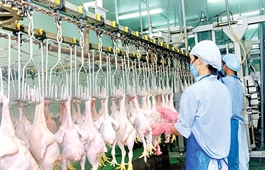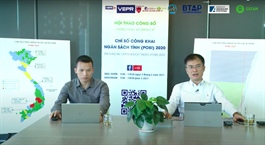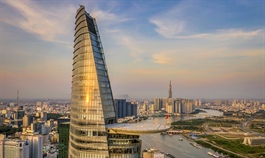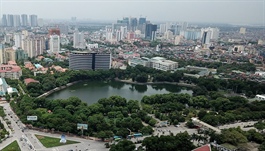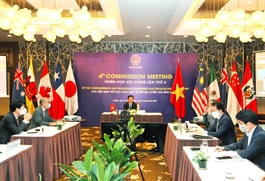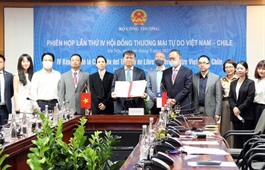Foreign investors seek PPP guarantees to incite interest
Foreign investors seek PPP guarantees to incite interest
While new public-private partnership ventures and new legislation are in the gun barrel waiting for potential investors to join, possible concerns over risk protection are still in the way, possibly threatening the bankability of the country’s future transport plans.
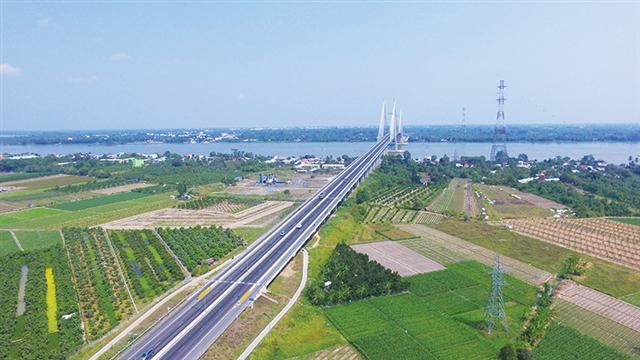
Belt roads and other infrastructure projects could provide a significant boost to trade and business across Vietnam. Photo: Le Toan
|
Hanoi and the northern provinces of Hung Yen, Bac Ninh, Vinh Phuc, and Bac Giang are now waiting for the nod from the prime minister to develop a $5.9 billion road project, besides a sum of VND25 trillion ($1.1 billion) for site clearance.
The Belt Road No.4 project, thus enabling preparations for development, including calling for private investors to join public-private partnership (PPP) sections.
Experts said that private and foreign investors are interested in transport infrastructure, including beltways in Vietnam, where infrastructure covers more than roads and railways. However, investors are still concerned about some of the new regulations in Decree No.35/2021/ND-CP dated March 29, guiding the Law on Public-Private Partnership Investment that might affect their interests in PPP ventures.
Tony Foster, managing partner of the Vietnam offices at Freshfields Bruckhaus Deringer LLP told VIR, “The levels of foreign investor interest in PPPs will depend on the protections available. This is not because foreign investors do not take risks but because lenders do not. The lenders could push risks back onto the investors but when the size of the project is too large for the investor to take such risk, the PPP will not be completed.”
However, as shown in Decree 35, it does not assist much in this allocation of risk and hence does not assist much in making PPPs more likely to be successfully project financed. One of the main risks that lenders are cautious of is termination risk. If a project ends and it is not as a result of a breach by the developer, lenders want the outstanding amount paid to them by the government. Nonetheless, Decree 35 does not state such a principle, or any lesser variation of it.
“Unless there is a clear policy on minimum protections, it is unlikely to be achieved in practice, at least in the immediate future. Developers may not even spend the time and money required to test whether it is possible to negotiate the required protection,” Foster explained.
Worse still, Decree 35 also fails to provide any protection to a developer against a change in law. Such a change can put up the costs for a PPP venture, even if the revenue is fixed. This reduces the amount that can be paid back to lenders or that can be retained as profits.
One lawyer told VIR that the PPP law does have some revenue risk protection in that if revenues from a project falls below 75 per cent of the agreed projections, the state will pay 50 per cent of the difference between actual revenue and 75 per cent of the amount agreed, subject to various conditions. But this alone may not be sufficient enough for overseas lenders in large projects.
Some of these investors have expressed interest in the eastern cluster of the North-South Expressway project, which was earlier planned to be split into 11 sub-projects with eight being PPPs. However, this interest went nowhere – indeed, there were no domestic takers for five of the eight sections. Of the three remaining, the first contract for the Nha Trang-Cam Lan section was signed recently with the Ministry of Transport (MoT). The state has to fund the other eight sub-projects.
Meanwhile it is unlikely that there will be significant foreign interest in railways, which have proven difficult for the PPP model in many parts of the world.
Vietnam is planning to develop a number of transport infrastructure in the future. The more concerns are solved; the more investors the country attracts to achieve their goals. By 2025, the country aims to complete the North-South Expressway’s eastern cluster. And by 2030, the country strives to have around 5,000km of expressways while also developing Long Thanh International Airport and expanding Noi Bai International Airport.
Vietnam will also invest in seaports to improve their capacity.
In the Mekong Delta, furthermore, the MoT is making preparations for development of nearly 40 new projects on roads, maritime, inland waterways, and aviation with the total investment capital of $5.14 billion, of which $4.29 billion is needed for the 2021-2025 period.



